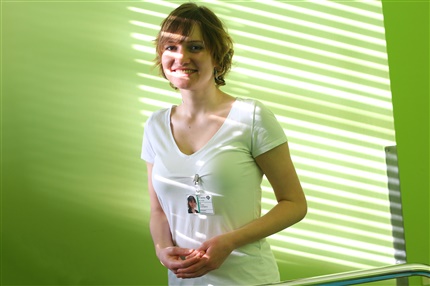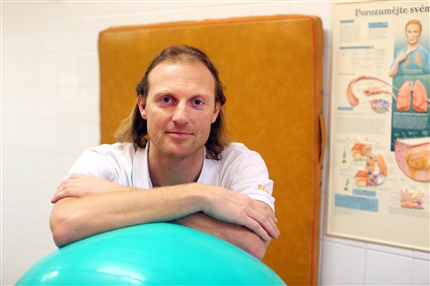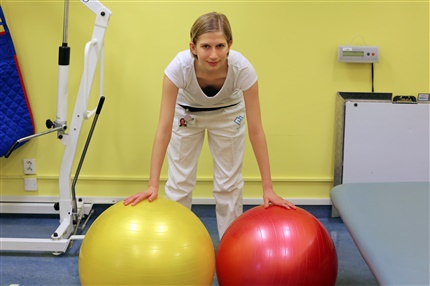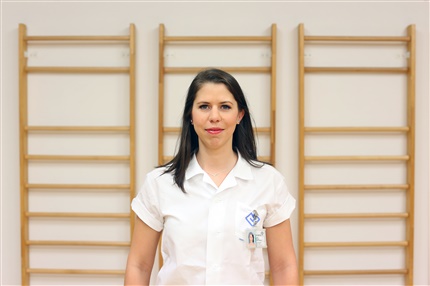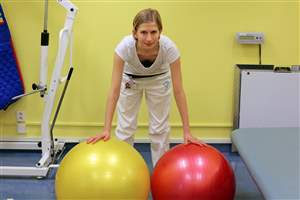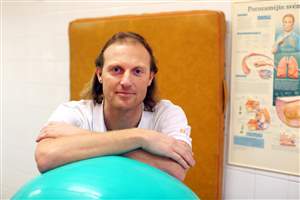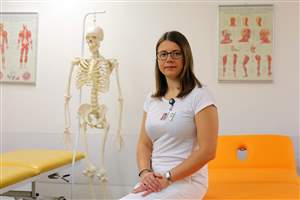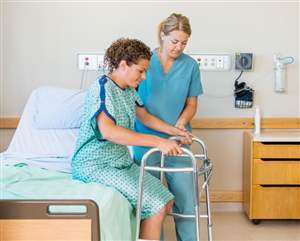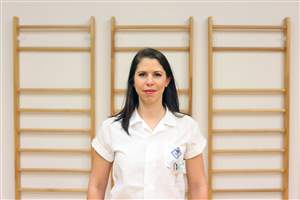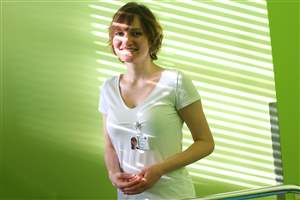The Specialized Center of Rehabilitation and Sports Medicine
Cardiovascular Surgery and Pulmonology
A brief overview of the Specialized Center
The Specialized Center of Rehabilitation and Sports Medicine focuses on physical therapy for adults and children. We treat patients suffering from various diseases and conditions, such as vertebrogenic disorders, neurological diseases, injuries of the locomotive system, and internal diseases.
Yearly, we admit more than 630 patients and provide treatment for approximately 4.350 outpatients in our department. Between our other departments, we provide therapy to roughly 13.500 patients.
Our physiotherapists work within six specialized centers in the University Hospital in Motol. These centers are the Specialized Center of Cardiovascular Surgery, the Specialized Center of Neurology, the Specialized Center of Orthopedics, the Specialized Center of Pulmonology, the Spinal Cord Unit, and of course the Specialized Center of Rehabilitation and Sports Medicine.
How will your detailed schedule look like? What type of procedures, methods or treatment can you observe? Check what can you see by shadowing every member of the mentoring team.
Is this specialty placement ideal for you?
-
This specialty is the right one for those of you, who are interested in physical therapy methods, cardiac surgery, pulmunology and sports medicine. The bond between the physiotherapist and the patient is a very strong one as we meet on regular basis and mutual trust is very important. You need to possess empathy, sensibility and patience, since the recovery from any disease or injury is a long way run, but when successful, the work is completely worth it.
-
This specialty is ideal for you, if you aspire to become a physiotherapist, or doctor focused on cardiovascular surgery, pulmonology or orthopedics. At this type of placement you will gain a valuable insight into these fields and see their comprehensivness.
Let's take a closer look at the specialties…
Some of our physiotherapists work in our Specialized Center of Rehabilitation and Sports Medicine in the Physiotherapy Unit. The majority of our physiotherapists, however, work in other specialized centers permanently because their assistance is indispensable. For that reason, we closely cooperate with the six specialized centers within the hospital. Among these specialized centers are the Pulmonology Specialized Center and Cardiovascular Surgery Specialized Center.
Pulmonary physical therapy
To further improve our therapeutic care, we utilize many tools and devices. Among the most used are Flutter, Acapella, and Threshold PEP. The aim of cardiac surgery physical therapy is to help improve the health and well-being of patients who have undergone cardiac surgery. In order to achieve the best possible results, we need various therapeutic aids and tools: a posturograph, an electric treadmill with an integrated strain gauge platform, and others.
Who do we take care of?
Physiotherapy at the Pulmonology Specialized Center is a broad program that helps improve the well-being of people who have chronic breathing problems, such as chronic obstructive pulmonary disease, sarcoidosis, idiopathic pulmonary fibrosis or cystic fibrosis, bronchial asthma, fluidothorax, and pneumothorax with thoracic drainage. Furthermore, we provide care for patients before and after lung surgeries, like lobectomies, pneumonectomies, and lung transplants.
Our physiotherapeutic team at the Cardiovascular Surgery Specialized Center provides care for patients who have undergone cardiac surgeries, like bypasses or valve replacements. Therapy has to start as soon as possible after their operation because cardiac surgery is very taxing on the patient and has a high chance of inducing complications such as stroke, paresis, or sepsis.
Our methods and procedures
In the process of pulmonary physical therapy, we use various methods and procedures to achieve the best possible results:
- Training in autotherapy
- Manual physiotherapeutic techniques
- Various breathing strategies (e.g., autogenous drainage, PEP breathing system)
- Correction of breathing patterns
- Strengthening of the breathing muscles
- Many examination methods (e.g., spirometry, x-ray, blood gas tests, bronchoscopy)
During cardiac surgery physical therapy, we perform the following procedures:
- Respiratory physiotherapy
- Light fitness exercise on the bed with progressively increasing intensity
- Electrotherapy
- Magnetic therapy
How does the usual schedule look like?
- Our mentoring team works on a regular schedule without any fluctuations. Work here is therefore ideal for people who like fixed working hours. We focus on both inpatient and outpatient care, the minimum of 25 hours in the hospital is guaranteed.
If you are not sure whether this choice is suitable for you, don't hesitate to contact us. We will discuss your experience and motivation and come up with the best solution for you.

